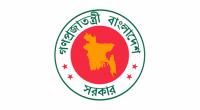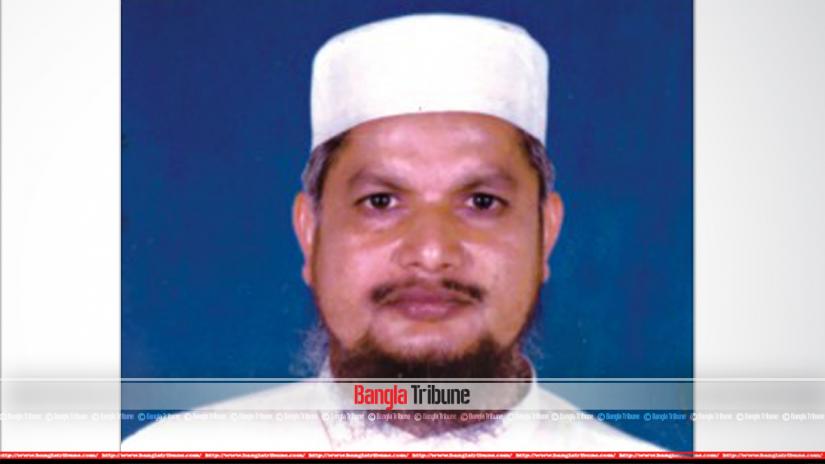 Harkat-ul-Jihad-al-Islami Bangladesh (HuJI,B), the Bangladeshi branch of the terrorist group Harkat-ul-Jihad-al-Islami (HuJI) orchestrated the 2004 attack on an Awami League rally to eliminate the-then opposition leader and now Prime Minister Sheikh Hasina.
Harkat-ul-Jihad-al-Islami Bangladesh (HuJI,B), the Bangladeshi branch of the terrorist group Harkat-ul-Jihad-al-Islami (HuJI) orchestrated the 2004 attack on an Awami League rally to eliminate the-then opposition leader and now Prime Minister Sheikh Hasina.
Twenty-four people were killed in that attack. If the attack was fully successful, most of the Awami League policymakers, including the party chief, would have died.
A total of 52 people have been charged in two cases over the attack — one over the killings and the other under the Explosives Act. One of them is Maulana Abdus Salam, one of the founders of HuJI,B.
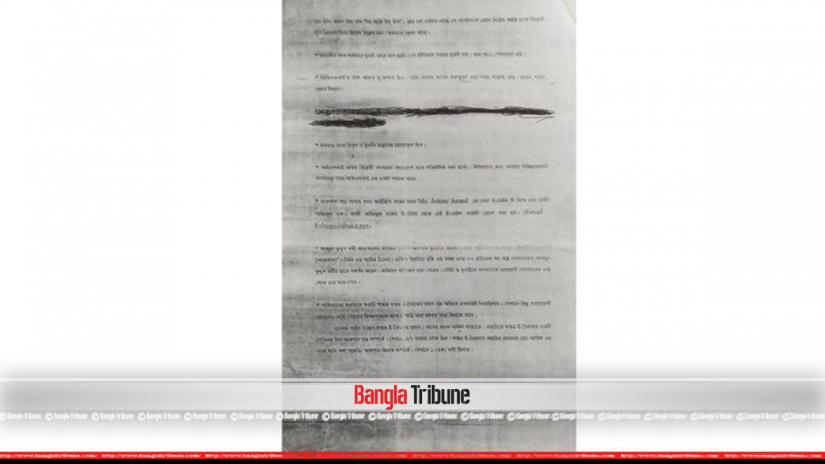 During interrogation, Salam told investigators of meeting Osama bin Laden in the 80s during the Afghan war and how he had inspired him to raise arms against the then-Soviet invasion in Afghanistan.
During interrogation, Salam told investigators of meeting Osama bin Laden in the 80s during the Afghan war and how he had inspired him to raise arms against the then-Soviet invasion in Afghanistan.
Salam’s statement to investigators revealed HuJI,B’s links with India’s ULFA, Myanmar Rohingya militants and the Pakistani spy agency Inter Services Intelligence (ISI).
HuJI or HJI was formed in 1984, during the Soviet-Afghan War. In 1987, it associated with Osama bin Laden’s Jihad. Back then, the Saudi construction billionaire’s son, Osama used to work for an organisation named ‘Makhtab Al Khidmat’. The infamous al-Qaeda was formed in 1988 and HuJI has been affiliated with it since then.
HuJI’s Bangladesh branch, the HuJI,B started its activities in 1989. Its first public appearance was on Apr 25, 1992, when it held a rally. Donning Afghani attires, its activists raised slogans identifying them as ‘Mujahid-e Afghan’ (Afghan war veterans) and calling for Jihad.
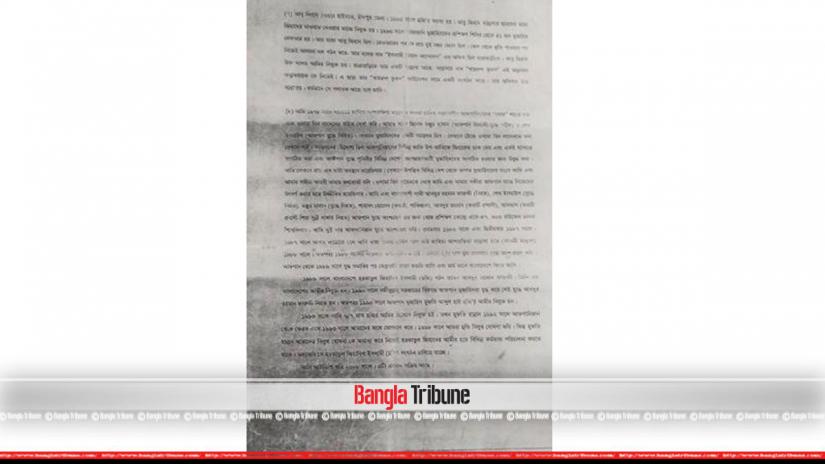 Five days later, on Apr 30, it held a media briefing at the National Press Club, where it unveiled plans for ‘religion-based nationalism’ and pledged introducing Islamic laws.
Five days later, on Apr 30, it held a media briefing at the National Press Club, where it unveiled plans for ‘religion-based nationalism’ and pledged introducing Islamic laws.
All of these were led by Salam.
The son of Sheikh Mazhar Ali of Bogura, madrasa-educated Salam went to Pakistan in 1984 for higher studies.
The Dawra Hadith-graduate from Lahore’s Jamia Ashrafia Madrasa was arrested on Nov 1, 2009 over the grenade attack on the Awami League rally.
In his statement to the investigators, Salam said that sometime in March 2004, a few months before the attack, he came across with Mufti Abdul Hannan (executed HuJI,B top leader).
“He took me with him to Mohammadpur’s Sat Masjid for the midday prayers, where I met Maulana Tajuddin and Abdul Majed Butt. Tajuddin said it will be difficult for us to operate in Bangladesh and India if the Awami League comes in power and the only way to stop it was to eliminate Sheikh Hasina. With her out of the scene, the party will split and will never be able to come in power,” reads the statement.
Salam said he went to Pakistan the next month and spent nearly four and a half months in Lahore and Karachi. “It’s all stated in my passport. I returned to Bangladesh a few days after the Aug 21 grenade attack.”
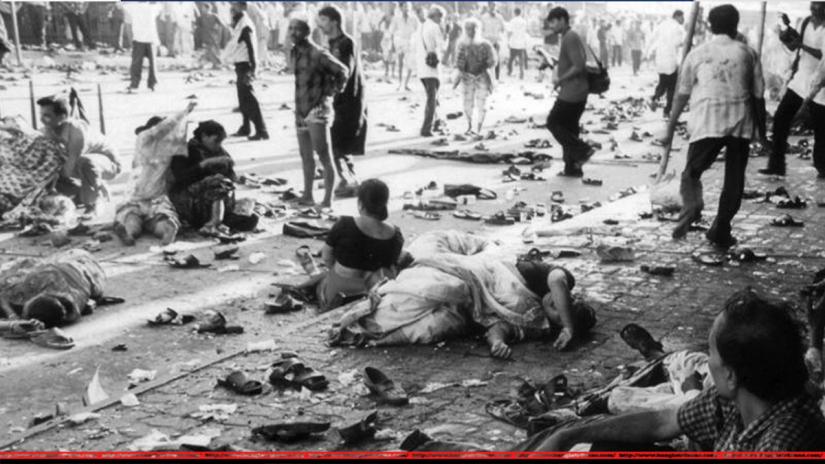 Maulana Tajuddin is one of the masterminds of the Aug 21 2004 attack who allegedly supplied the grenades.
Maulana Tajuddin is one of the masterminds of the Aug 21 2004 attack who allegedly supplied the grenades.
According to court documents and sources at the intelligence, the then-officials of the Directorate General of Forces Intelligence (DGFI) escorted him to the airport to board a flight to Pakistan’s Karachi.
In 2014, the Interpol informed Bangladesh that he was traced in South Africa, following which Dhaka made official requests to Pretoria to deport him.
Tajuddin is the brother of former BNP deputy minister Abdus Salam Pintu, who is also one of the accused in the cases.
Abdul Majed Butt was born in India but later became a Pakistani citizen.
An operative of Hijbul Mujajhideen, which is considered the largest guerrilla organisation active in Indian-administered Kashmir, Butt frequently travelled between Bangladesh and Pakistan from early 2000 to mid 2007 until his arrest.
He was responsible for supplying arms to India through Bangladeshi soil.
In his statement to the investigators, Salam described his days in Pakistan, Afghanistan and meeting Osama bin Laden.
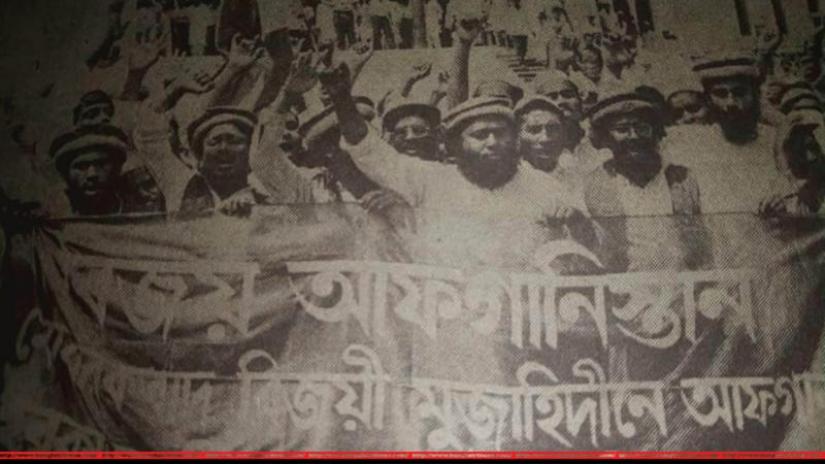 “In 1987, while I was a student at a Lahore madrasa, I travelled to Afghanistan’s Khost (the capital city of eastern province of Khost), where I met Osama bin Laden. It was a convention of Mujahid’s and he (bin Laden) was on the stage,” it reads.
“In 1987, while I was a student at a Lahore madrasa, I travelled to Afghanistan’s Khost (the capital city of eastern province of Khost), where I met Osama bin Laden. It was a convention of Mujahid’s and he (bin Laden) was on the stage,” it reads.
According to Salam, it was that convention which inspired him to take arms against the Soviet invasion of Afghanistan.
“I received training on operating firearms like, AK 47 and 303 rifles in Khost to take part in the war.”
According to the statement, Salam took part in war twice.
“After the 1987 stint, I returned to Lahore and cleared Dawra Hadith in 1988. In November the same year, I went to Afghanistan and took part in the war before returning to Karachi in February 1989 and in Bangladesh the next month,” he told investigators.
HuJI,B maintained close links with ULFA or the United Liberation Front of Assam, a separatist outfit operating in Assam, North East India for the Indigenous Assamese people. It seeks to establish a sovereign Assam with an armed struggle in the Assam conflict.
“Mufti Hannan and Sharif Shahed Bipul (executed in April 2017 for the 2004 Sylhet attack on the then-UK envoy) were responsible for maintaining relations with ULFA on behalf of HuJI,B. ISI (Pakistan spy agency) used to Bangladesh soil for its activities against India. It (ISI) maintains close links with ULFA and other separatist outfits,” the statement quoted Salam saying.
During his interrogation, Salam also revealed HuJI,B’s links with Myanmar’s Rohingya militants.
“HuJI’B’s current chief Mufti Moeenuddin (now in jail) told me in 2006 that he has supplied arms and ammunitions to the Rohingya Mujahideens in Chattogram. As far as I know, the arms were handed over at the (refugee) camp in Naikhangchhari (in Bandarban),” Salam told investigators.
Also Read:
Aug 21 attack suspect Pakistani Yusuf Butt’s ‘Bangladesh Mission’

